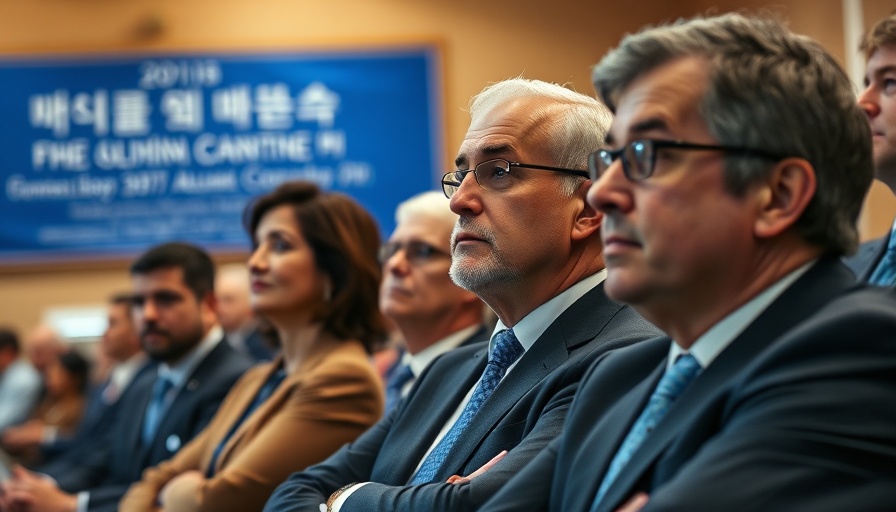
Unraveling the High Treason Dockets: Implications on South African Politics
The Hawks, South Africa’s elite crime-fighting unit, have opened four high treason dockets in connection with alleged misinformation propagated about the nation’s controversial Expropriation Act. This act, aimed at addressing long-standing land inequities that stem from apartheid, is now at the center of international scrutiny following statements by former U.S. President Donald Trump, which have been labeled as misleading.
An International Incident Sparked by Misinformation
The complaints against various parties—including accusations from the uMkhonto weSizwe (MK) Party—follow Trump's conflated claims about South African land reform policies being discriminatory against Afrikaners. As a result, Trump has been criticized for his agendas that could potentially further exacerbate tensions within South Africa.
Hawks Head General Godfrey Lebeya has not specified who may face charges but emphasized that the investigation will continue in an unbiased and thorough manner. With four separate dockets filed by different political factions, it underscores a multifaceted political landscape grappling with issues of misinformation and its dangerous ramifications.
The Expropriation Act: A Double-Edged Sword
At the heart of this controversy is South Africa's Expropriation Act, which aims to redress historical injustices in land ownership. The act provides conditions under which land may be expropriated without compensation, delineating situations such as abandoned or underutilized land. This has incited widespread debate both domestically and internationally about the government's intentions and methodologies.
Many voices, including those of the businesses and political parties opposed to the act, argue that it threatens economic stability and property rights. Others contend that it is essential for creating equitable access to land, given the historical disenfranchisement of the Black majority in South Africa, where white South Africans, representing less than 11% of the population, owned approximately 86% of agricultural land post-apartheid.
The Political Ramifications and a Call for Accountability
The opening of these high treason dockets has significant implications for South African politics, particularly as the country navigates its first coalition government since the end of apartheid. Analysts and stakeholders are keenly observing the outcomes, which may influence the ruling African National Congress (ANC) and its coalition partners like the Democratic Alliance (DA) and Economic Freedom Fighters (EFF).
This political turbulence emphasizes the necessity for accountability and clarity in governance. Citizens increasingly demand transparent communication regarding governmental policies. The Hawks have stated they aim to gather substantial evidence before making any arrests, signaling their commitment to upholding the rule of law and public interest.
Future Implications: How Misinformation Shapes Policy Discourse
This case raises vital questions about the impact of misinformation in politics. As political tensions rise globally, the consequences of distorted narratives can lead to international diplomatic crises and domestic unrest. Understanding the Expropriation Act in its proper context is essential, and exposing misinformation is paramount for social stability.
The overarching question remains: What are the perils of propagating misinformation in a highly interconnected world? The actions taken by the Hawks and the allegations of treason reflect a broader narrative about the importance of truth in public discourse. It reinforces the need for vigilance within media reporting and the responsibilities of individuals in the political sphere to advocate for accurate representations of policies that impact every citizen.
Final Thoughts: The Role of Political Responsibility
This case brings focus to the importance of political responsibility—both for those in power and those engaging in political discourse. As South Africa aims for economic recovery amidst challenges like load shedding and unemployment, clear communication around sensitive policy changes is more crucial than ever. Moving forward, actors at all levels must commit to transparency and accuracy, echoing the country’s commitment to democratic resilience and accountability.
 Add Row
Add Row  Add
Add 




Write A Comment